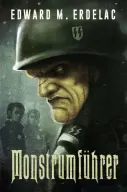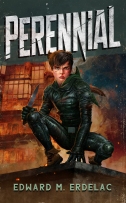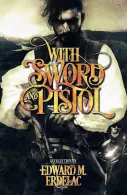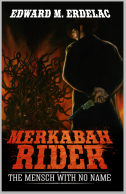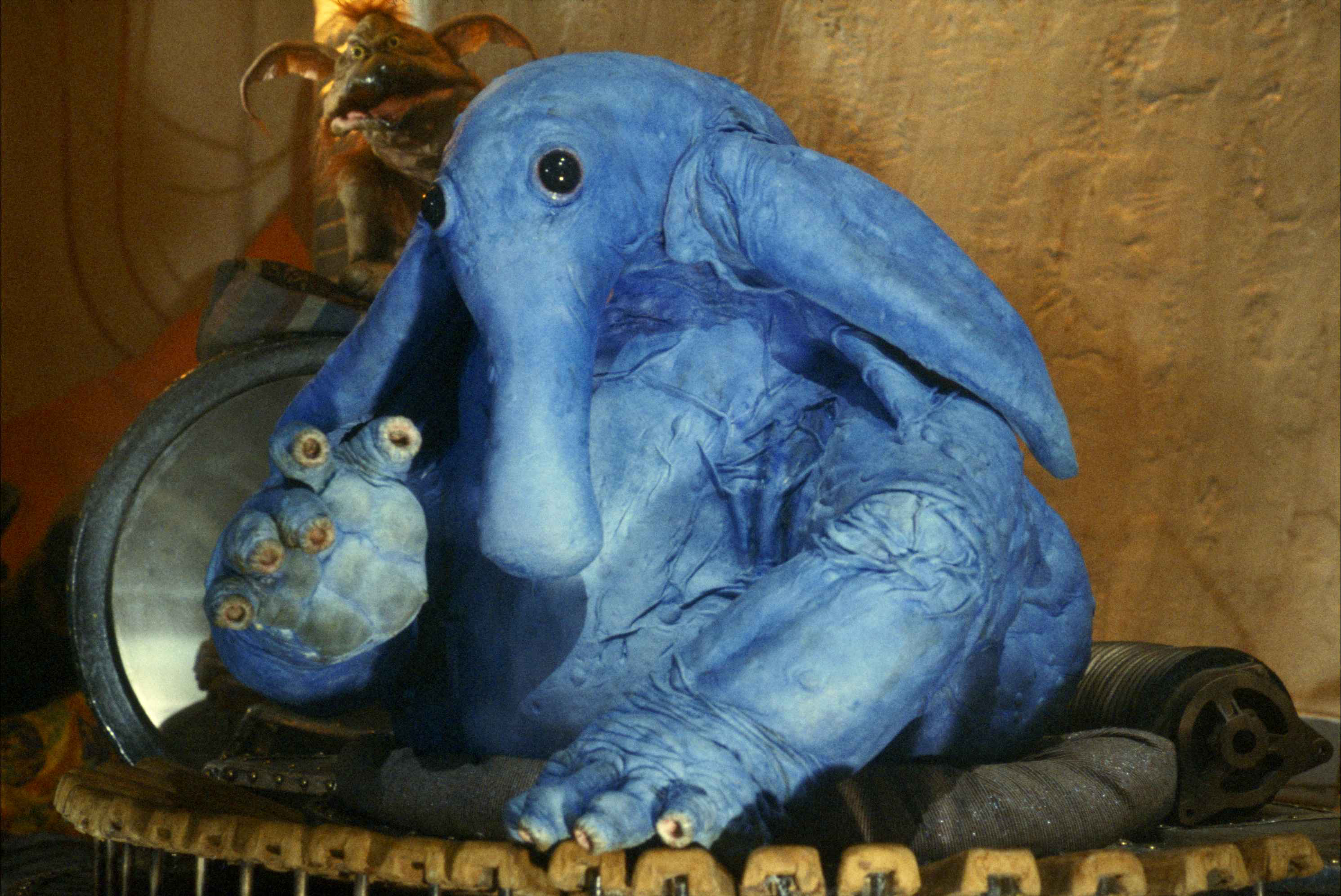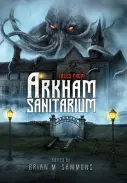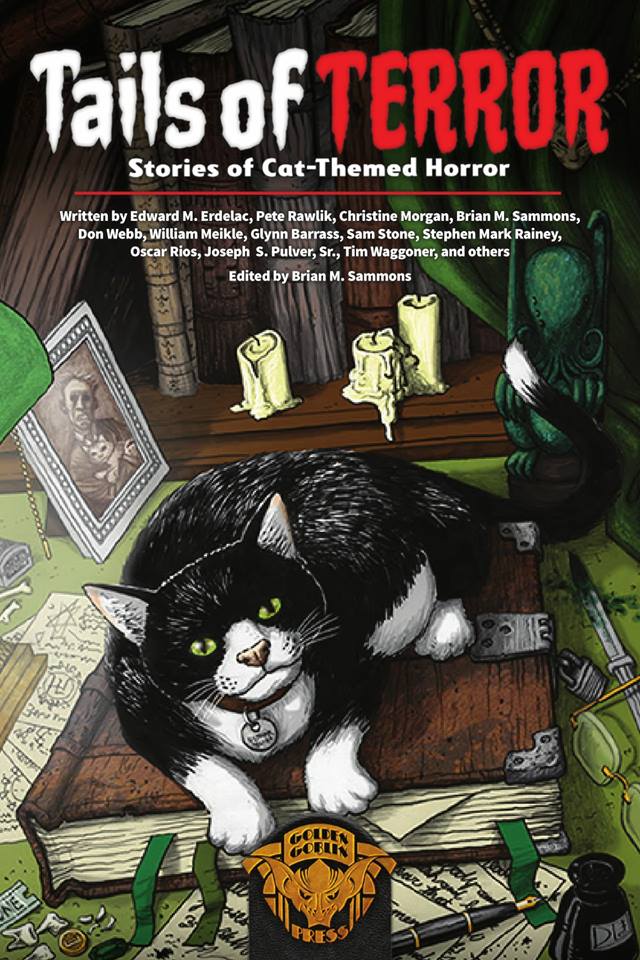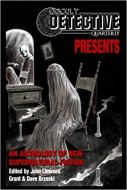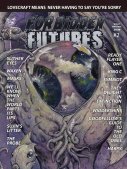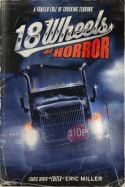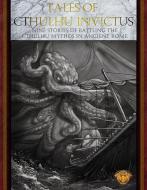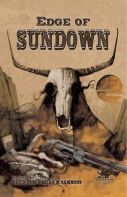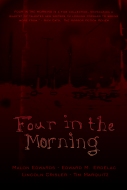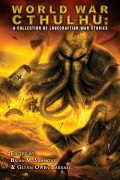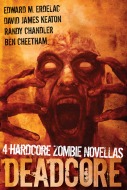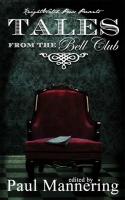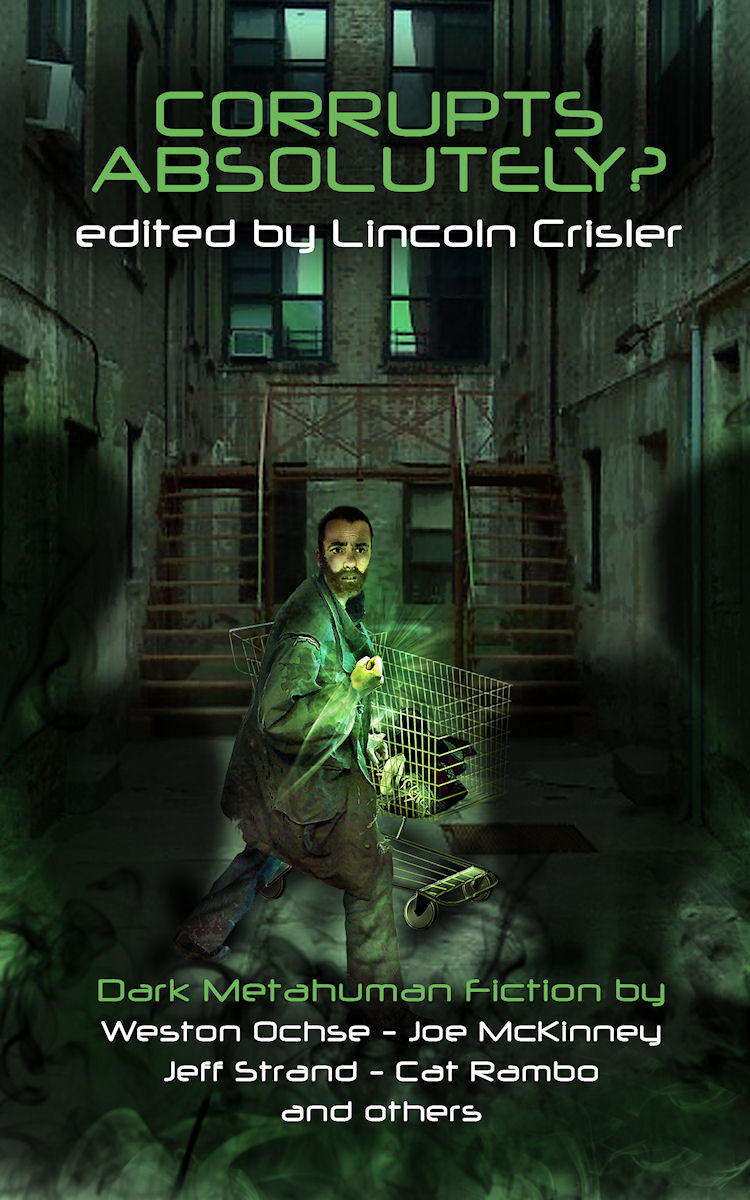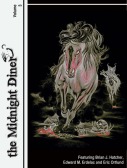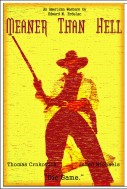May 4th will see the release of my collection (really, a novel in eight stories) RAINBRINGER: ZORA NEALE HURSTON AGAINST THE LOVECRAFTIAN MYTHOS, which bundles together three previously published stories and five never before seen, all featuring the Harlem Renaissance writer Zora Neale Hurston (read about her here) reimagined as a Mythos detective.
You can preorder the book here. https://www.amazon.com/Rainbringer-Hurston-Against-Lovecraftian-Mythos-ebook/dp/B08YNH7JQ2/ref=sr_1_1?dchild=1&keywords=rainbringer+erdelac&qid=1616448793&sr=8-1
In the next seven weeks leading up to release, I’ll be posting a little bit about each included story as well as the opening paragraph, beginning today with LEAVES FLOATING IN A DREAM’S WAKE, which is an epistolary story I wrote to kick off this collection.
It finds Zora in New York City in 1925, having just transferred from the historically black Howard University in Washington, DC to enroll in Barnard College as its first African American student. She is pursuing her studies and aspiring to write, looking back at the love she left behind, and struggling to make ends meet when she experiences a peculiar prophetic dream during an earthquake on the night of February 28, 1925, a dream shared not just by several Harlem artists, but unknown to her, receptive creatives around the globe.
The earthquake in question is the 6.2 Charlevoix-Kamouraska earthquake which was felt in New York City (and, Lovecraftian afficionados will recognize as the likely source of the quake mentioned in THE CALL OF CTHULHU).
————————————————————————————–
January 19th, 1925
Dearest Herbert,
Thank you kindly for your sincere well wishes on the occasion of my latest and what I hope will be my greatest run around the sun. I am well as can be and hope most ardently that you are the same. I was reluctant to write you. I wanted to give you your space after all. I guess the distance between Chicago and New York City should probably be all the space anybody would ever want, but of course, I meant time. I think of you more often than I like, if I am being honest, which, with you, I always am.
Tell me how your courses are going at Rush. I know Chi is the Windy City, so I can’t even imagine the level of gales that blow through your clothes. Here in Harlem it is cold, cold cold! And you know how my teeth used to chatter walking home from S Street! My Florida blood is too thin for these northern winds. I wish you were here to warm me.
Yet, I am not so lonely that I will be throwing myself from my window. No, not even over you, my doctor to be. Harlem is a dream, and calls to mind old Eatonville, but dressed up in grown folks’ clothes. My people here don’t slouch when they walk, and standing on the corner of Seventh and 135th is like people watching in front of my family’s house again.
Negroes flow by like a great muddy river, in every lovely shade of beautiful black, and it is tempting to jump on the running boards of the shiny cars or slip my arms through stranger’s elbows, just to lose myself in the current and float down whatever eddy is moving swiftest.
Oh, and I am. I am dancing with poets, singers, jazz men and other liars. Every tongue and every spine is loose. I saw none other than Duke Ellington play at a rent party last Saturday night. The next time you are in town I will take you to a buffet flat, but don’t ask what that is – I want to see the look on your face. I imagine it will be much like my own was the first time I went with Angelina Grimke.
Yes, I have reconnected with a few of the old Saturday Nighters here. James Johnson is only a few blocks down from me. Of course I am in contact with Dr. Locke, and have been over to Dr. Johnson’s home for dinner a few times. His wife is a lovely person and a tremendous cook. Whenever I dine with them and I at last push away in surrender from their bounteous table, I expect to see a bill waiting to be paid, but so far so good, which is good, because brother, I am broke and it is no joke.
I’ve been working as a manicurist again to make ends meet, wearing down my own nails at night on the typewriter. I’m working on a story, Spunk, which I hope Dr. Johnson will go for, and kicking around the idea of a play. Dr. Locke is guest editing an all-Negro issue of Survey Graphic in March and will be showcasing a number of Negro writers, so I hope to have something in that.
I’m not at the Nicholas Avenue address anymore. Use this one instead.
Devotedly,
Zora Neale Hurston
In 1928 Zora Neale Hurston was in New Orleans collecting data for what would become MULES AND MEN, her monumental ethnographic study of African American folklore in the south. For me, that culminated in her chapters on the Hoodoo phenomenon.
Zora submitted herself to the tutelage of Doc Luke Turner, a prominent Hoodoo man and relation of legendary New Orleans Voodoo Queen Marie Laveau. She spent sixty nine hours naked on a couch draped in snakeskin without food or water…
… I was stretched, face downwards, my navel to the snake skin cover, and began my three day search for the spirit that he might accept me or reject me according to his will. Three days my body must lie silent and fasting while my spirit went wherever spirits must go that seek answers never given to men as men.
I could have no food, but a pitcher of water was placed on a small table at the head of the couch, that my spirit might not waste time in search of water which should be spent in search of the Power-Giver. The spirit must have water, and if none had been provided it would wander in search of it. And evil spirits might attack it as it wandered about dangerous places. If it should be seriously injured, it might never return to me.
For sixty-nine hours I lay there. I had five psychic experiences and awoke at last with no feeling of hunger, only one of exaltation. – Mules And Men
In the end, the spirit she sought granted her the name Rain-Bringer, for which this collection is titled. It prophesized that she would ‘make her way with lightning and thunder.’ The secret name of her spritual patron will be familiar to readers of Lovecraftiana.
The second story in RAINBRINGER, BEYOND THE BLACK ARCADE, also originates in something from THE CALL OF CTHULHU. One of the scenes of Lovecraft’s story that stood out for me was Inspector Legrasse’s raid on the bayou worshipers. What if the New Orleans’ police confiscating the Cthuhlu idol had unexpected consequences for the surrounding area? What if the cult of Cthulhu was enacting its horrific rituals at that lonely spot in the swamp to hold back some other malignant terror?
Here’s the excerpt.
————————————————————————————————————
Under high arches of twisting, moss garnished cypress and through sucking, chill waters we waded, me feeling the cool, brackish slime on my bare legs and Doc Turner leading the way without any light but what stars could be glimpsed through the tangled boughs overhead. Things moved away from us in the water which I supposed were alligators.
Out of the dark came a high, child’s wail and a shout that made my skin prickle up. There was a commotion of cracking wood, like the sound of falling trees I knew from the lumber camps around Eatonville. I could not imagine who should be way out here in the bayou pitching such a fit, and I wished I had thought to bring the .44 I had toted around the turpentine camps to convince folks I was a bootlegger.
Two shotgun blasts boomed like thunder, and I saw the flashes of the muzzle a ways off.
Against common sense, Doc Turner made for the sound, though in no hurry.
This was to be my test, then; the test of Great Yig.
In EKWENSU’S LULLABY, it’s 1935 and Zora has teamed up with ethnomusicologist Alan Lomax and folklorist Mary Elizabeth Barnicle to gather and preserve the songs and stories of the Gullah people of St. Simon’s Island, Georgia.
After a brief, startling encounter with a shambling creature the locals call ‘Ol Cootah, they record the legend of the flying Africans, slaves who revolted aboard their transport and killed the crew. Then a mysterious man tells them the true history behind the tale, and of the existence of a creature sunk in the deepest point of the river, a creature whose cry instills the listener with irresistably violent urges…..
———————————————————————————————————————————–
The first time the Georgia State Police pulled us over we were the subject of such intense scrutiny that we lost a good two hours of travel time and came upon the lights of Savannah bleary-eyed and half mesmerized by the road.
They were convinced our party, a young white gentleman with a Texas driver’s license, his mature white lady companion from Rhode Island, and I, a conspicuously independent Florida Negress, were some kind of Yankee loving rabble rousers come down to stir up trouble among their niggers. It took some shuffling on my part and not a little bit of the WPA’s money to convince the beady-blue-eyed deputy sheriffs that the sole purpose of our Airstream trailer full of recording equipment was to capture the songs and stories peculiar to the remote Negro communities of their state, mainly, I am sure, because they themselves could see no value in such an enterprise.
I presented myself in the manner to which they were accustomed, telling them the whole truth in the simplest terms they could understand, surreptitiously encouraging Alan and Mary to correct my rude, affected speech and deliberate omissions and explain more clearly that Alan was the son of the renowned folklorist John Lomax, discoverer of the nationally renowned Leadbelly, who had famously sung his way out of a prison sentence at Angola. Miss Mary Elizabeth Barnicle, professor of folk music at NYU, became his deferring assistant. Most importantly, I explained that I, a native of Eatonville, Florida, had been selected by ‘Mass Alan’ to act in the capacity of a native guide, a Sacajawea to he and Mary’s Lewis and Clarke, gone adventuring among the dark primitives.
I brought this across in the most common manner I could muster, bobbing my head meekly and averting my eyes as though I were addressing the burning bush and not some scowling cracker, saying all my ‘yassuhs’ and ‘nossuhs’ like they were ‘Amens.’ Thus realigned into a hierarchy the deputies could understand (and again, with their palms liberally greased), we became less interesting to them, and they agreed to let us pass.
When they finally departed with a genial ‘y’all have a good night now,’ and we stood by the side of the black road watching their taillights recede like the burning eyes of sated serpents slipping back into their deep dens, I straightened my previously hunched posture, lit a cigarette, stuck out my hip, and arched my eyebrow at my two astonished white colleagues.
“Good Lord, Zora!” Mary exclaimed, spreading her fingers over her heart with a nervous laugh. “If I didn’t know you, I would have believed you myself.”
Believed what? I wanted to say.
Now I, Zora Neale Hurston, am a grand champion liar, but like all accomplished liars, I get my feathers ruffled when I’m telling the truth and get accused of practicing my vocation. I had told no lies, but I knew what Mary Barnicle meant. She meant that had she not known me as an authoress and educated woman of the Harlem mode (a lie of omission to the deputies at best), she would have mistaken me for the dumb country woman I had been playing. I was not truly playing, however, nor, like most country women I have known, was I dumb. But the white unit of measure for intelligence is very different.
In 1935 Zora was on the cusp of the release of Mules And Men, her first seminal folkloric work, collecting the stories and traditions she gathered on her extensive southern travels. To make ends meet, she landed a job as a dramatic coach with the Federal Theater Project in New York City.
In King Yeller, Zora is assigned to first-time director Orson Welles’ all-black production of Macbeth staged at the Lafayette Theater in Harlem. Historically, Welles’ star-making production, nicknamed ‘Voodoo Macbeth’ was concieved as a reimagining of the Scottish play set in Henri Christophe’s Haiti, and starred Jack Carter, Canada Lee, Edna Thomas and Eric Burroughs. A rousing success, it defied the racist expectations of white critics, packed the house in Harlem, and cemented Welles early career.
But what if, in the six month span of rehearsals, Welles was anonymously passed a copy of another notoriously ill-fated play, and became obsessed with staging it instead? That’s the central conceit of King Yeller, in which Zora learns the secret of The King In Yellow and must prevent an obsessed Orson Welles and cast from enacting its terrible secret rite.
Tormented into desperation, Lear the frantic King tears off the mask, and speaks the sane madness of vital truth. – Herman Melville, Hawthorne and His Mosses from The Literary World, August 17 and 24, 1850 by a Virginian spending July in Vermont.
The past few months had been something of a brick lick to the jaw.
My turgid on again-off again love affair with my magnificent young minister-in-training Percival Punter had at last succumbed to the laws of gravity and come crashing down. In short order the two-year $3,000 Rosenwald Fellowship I had won to earn my anthropology doctorate at Columbia went tumbling after. I had just returned from an eventful trip with Alan Lomax and a certain NYU English professor who shall no longer be named collecting folk music down in Florida, which had soured in the end. All of this had conspired to leave me down on the whole notion of formal academia.
I was in a low valley and once again wished that damn fool Langston was still around to cheer me, but he and I had had a falling out over the authorship of our play, Mule Bone and he was off on the West Coast somewhere. I had also broken ties with my dear white Godmother in order to wrest the folklore I had gathered for Mules And Men out from under her terrible weight. With that book still a month away from publication and the residuals from my novel Jonah’s Gourd Vine now slowing to a trickle, I had no real means of drawing myself up from my rut. I had pressed Dr. Boas about my application for a Guggenheim to study obeah practices in Jamaica and Haiti, but having chased that rabbit before, it was as unreliable a prospect as a catching hold of a cloud in the breeze.
It was strange how a mundane thing like being broke of heart and pocketbook in an empty apartment can make one forget one’s self worth. Last June I had wrested young Alan Lomax from the wiles of a prehistoric creature. Only a few years earlier I had got the better of a fledgling god in the Louisiana bayou, and refused the call of Yig and the power of the Ring of Set. Hell, I had had a novel published! Now I found myself wishing I had hung on to that antediluvian doodad, for battling the cold indifference of an unfriendly New York City was very much like facing the cosmic indifference of a ravenous Old One.
The Rain-Bringer was bowing her head beneath the rain.
Unsurprisingly, listening to my Bessie Smith records didn’t help, so I ventured out into the September morning gloom of Harlem for a bite to eat, pining for the brassy brightness of New Orleans or the shady green trees of old Eatonville and for other, more intimate things I would not know again.
In 1937 Zora was awarded a Guggenheim Fellowship which funded her research trip studying Obeah and Vodoun practices in Jamaica and Haiti respectively.
In GODS OF THE GRIM NATION, while attending the Fete Ghede celebration, she learns of an influential plantation owner who has enacted a ba moun pact that requires the sacrifice of a family member in exchange for wealth and fortune. The sorcerer has run dry of relatives and has turned to an obscure cult and its powerful patron entity to duck his spiritual debt – an entity it is death and madness to lay eyes upon. Zora and a handsome young Vodoun priest join forces to raise an army of the dead to push the fell god back into its own dimension…
Incidentally, GODS OF THE GRIM NATION was the first Zora story I wrote for Golden Goblin Press’ anthology DREAD SHADOWS IN PARADISE. I highly recommend reading Hurston’s fascinating account of her travels, TELL MY HORSE.
East of Port-au-Prince in early November the night was moonless. The clouds of a budding storm doused the green land in darkness. Each of the adepts was a god bringing forth light by their ignition of the twenty white candles surrounding Papa Ghede’s cross in the yard of the silent Hounfort.
I was by now used to the joyous noise and magic heat of the Voodoo service, and this solemn ritual at first seemed comparatively incongruous. Voodoo to me was shining bodies cavorting about the gaily painted peristyle in the closeness of the Hounfort, hidden from the white man’s eyes; it was the thunder of drums, beating out a divine rhythm which the hearts of humans could only aspire to, like the pulses of giant hummingbirds; the heartbeats of the gods of Haiti which the devoted hounsi hoped to accommodate as long as his or her mortal frame could withstand them.
This preparation seemed more in line with the Catholic novenas I had seen in New Orleans, replete with flickering votive candles, a cross, and the pious, white face of haloed St. Martin De Porres peering out from the oval frame of his portrait at the intersection of the cross. The warm breeze stirred our white and purple garb, and hissed through the trees.
Papa Ghede, León assured me, was an informal god. He was the loa of the penniless, unobserved by the upper class mulattoes and revered by back country peasants. He was the only loa to have sprung from Haiti herself.
I was nearly two months in the Black Republic on my Guggenheim Fellowship under the direction of Doctors Herskovits and Boaz. After finding myself traveling in the wake of Herskovitz’s other field researcher Katie Dunham, I had decided to strike deeper into the mysteries of Voodoo than my predecessor, so as to better differentiate my own work.
You got to go there to know there, I always say.
In SHADOW IN THE CHAPEL OF EASE, it’s 1940 and Zora is down in Beaufort, South Carolina directing a film crew, sent by Dr. Maragaret Mead and Jane Belo to record the services of the local black Sanctified Churches, particularly the speaking-in-tongues phenomenon for a comparitive study on religious ecstasy. Hearing rumors of a secretive congregation way out in the low country that practices the ‘Old Religion’ in the ruins of a plantation chapel, she secures an invitation to observe and record one of their ceremonies from an unexpected quarter; her estranged ex-husband…
As an aside, this was a remarkable historic achievement in Zora’s life, an African American woman directing a white male film crew, and establishes her as one of America’s earliest black female filmmakers (though she had previously filmed Vodoun rituals in Haiti in 1935).
It was Sunday evening at the Commandment Keeper Seventh Day Church of God and Reverend George had fired up the congregation with a story about being bit on the leg by a rattlesnake while out picking huckleberries, and taking comfort in Mark 16:18.
“They shall take up serpents; and if they drink any deadly thing, it shall not hurt them; they shall lay hands on the sick, and they shall recover.”
I thought briefly of Father Yig.
We had got down on our knees on the floorboards, elbows on the hard benches. We clasped our hands together, praying fervently for wisdom and understanding under Rev. George’s rhythmic guidance.
He finished his prayer with;
“And now we gonna sing a hymn. Because God knows, current events these days, they need a hymn sung for ‘em. Ain’t that so?”
We agreed resoundingly and lit into vibrant song. Carrie Belle’s tambourine shook like a heavenly rattlesnake warning the devils from the huckleberries of glory. Miss Izora beat out the rhythm of the saints on her guitar. The boys in their too-big ties and starched white shirts scrubbed the washboards with their thimble-fingers, scouring sin from the souls of the sanctified with a snare rattle backbeat.
Norman Chaflin, the youngest of my recording crew, manning the grinding field recorder and pressing his earphones to his head, nodded and gave me the thumbs up as I hammered the drums with a pair of rattle-goers and sang along into the silvery microphone set before us.
I had brought three of the four white men observing the service into the church. They were Norman, Bob Lawrence, and Lou Brandt, a film crew down from New York City at the behest of Jane Belo, here to record instances of religious ecstasy under my direction for Margaret Mead’s comparative anthropological study. The fourth was the old portrait of General ‘Black Dave’ Hunter looking on stoically from the frame behind Rev. George’s pulpit.
The church was situated inside the general’s namesake hall, Post Number 9 of the Grand Army of The Republic, the Union Civil War veterans association. The most famous member of Post 9 had been Beaufort’s beloved native son Captain Robert Smalls, the Gullah hero who had piloted a Confederate troop transport to freedom with his family smuggled aboard, served two terms in the House of Representatives, and bought his old master’s house over on Prince Street to move his mama in.
The post had seen better days. Whole hunks of plaster had fallen away from the clapboard, and at every stomp of the faithful, I feared more of the infrastructure would flake off. There was no electricity; strictly snake-hissing kerosene light, so Norman had to run a length of cable out to a neighboring farmhouse to power the lights and the recording equipment. Bob and Lou hand cranked the camera like an old-timey Charlie Chaplin endeavor.
I hoped it came out alright.
Sister Julia hopped to her feet then and began to whirl and shake, Spirit moving all through her in the same way I had seen the loa mount the chevaux at Plain de Cul de Sac.
Was the Spirit here in this room kin to Damballah Wedo, to Erzulie, to Yig? Was this phenomenon related to the Balinese trances Jane Belo had observed? I couldn’t say for sure, but I leaned toward yes.
It was undeniable that there was a ribald line of benevolent entities that played in the bodies of humanity when welcomed in, and as chaste and as self-abnegating as every church I’d been to from my girlhood on liked to proclaim they were, there were also hints of hot bloodedness to Sister Julia’s posturing that I had seen on display in countless jukes and Hounfours.
The tambourine boys saw it too, and I caught them appreciating the swelling seams of her stockings with a secret delight that Rev. George would have called sinful and Lady Erzulie would have thought fine and proper. A people can’t live and move on without lust and love after all. Ah bo bo!
Sister Julia shut her eyes and erupted in Hallelujahs, responding to shouts of Glory! with violent racks of her narrow shoulders and electrified, spastic shimmying, her head bobbing intonations of Jesus and Lawd and falling at last to inscrutable mutterings only the angels could parse.
I smiled and nodded my head, losing myself to the holy rhythm, the sacred beat that stretched back through generations, the pulse of my people answering the exultant shouts of our own gods, back before they were pushed like dough into cross shapes and powdered white, tattooed on the leaves of dead trees by pale hands.
“Hatred!” Sister Julia moaned then, and gripped her own elbows as though chilled by a cold wind, even though I knew the film crew’s hot lights were popping beads of sweat out on all of us. “Lawd, Lawd! I feel hatred!”
I glanced at Reverend George, who had screwed up his face at that, and though he shouted “Awright, sister!” he gestured with his fingers for Deacon Moore to come over. “Awright!”
Deacon Moore stood up from the circle and rushed over to catch Sister Julia as she moaned and swayed back and forth, tilting dangerously.
Then she went rigid and threw herself backwards into the deacon’s arms. She flung out her hand and pointed her finger at the dark window, where the headlights of a car turning off Prince Street swept and flared at us at that moment like the eyes of God searching the Garden.
“He’s here for her! He’s lookin! He’s here!”
Then all the lights went out completely and the big field recorder stopped cutting into the acetate.
In 1947, Zora used her advance for her infamous ‘white’ novel Seraph On The Suwanee to sail to Honduras in pursuit of a legendary City of The Monkey God – a lost native metropolis Charles Lindbergh sighted while flying over the jungle, said to have been a refuge for the native populace escaping the depradations of the conquistadores.
History records that Zora spent the rainy season pounding out her novel in a hotel in Puerto Cortes while her British partner failed to kick off the expedition. She quietly returned home with a completed manuscript only to find a spurrious accusation of child molestation awaiting her, an incident which sadly broke her spirit and set much of the tone for the remaining decades of her life.
Honduras was to be one of her last great adventures.
In BLACK WOMAN, WHITE CITY, Zora does embark on her quest to find the City of The Monkey God, and discovers a horrific secret waiting there, as well as its monstrous custodians….
———————————————————————————————————————————–
Catholicism was forced on the Indians by the Spaniards, and their old temples wrecked as far as the Spaniards knew about them. It is frankly admitted that they remained pagan in spite of that, and the conquerors frequently found them holding pagan rites even as late as the middle of the last century. They still do. You follow me, I know. There might be something back in there that is not meant for the Blanco’s eyes.
– Letter to Burroughs Mitchell.
It was at the request of Reggie Brett, an English gold miner lately employed at the Rosario Mining Company down in Tegucigalpa that I found myself squatting beneath the mangroves of a Miskito village deep in the Honduran jungle up beyond Perder La Esperanza, awaiting the commencement of the Dance of The Dead Monkeys.
Reggie was sozzled on native misla beer and our mestizo guide Tomas clutched a stapled, wrinkled copy of Daily Watchwords like the Bible itself in his fists, muttering low, incessant prayers.
As for myself, I was half broke, half stranded, and at fifty six, half dead after two rainy weeks paddling up the Rio Patuca, but for once I was all Zora Neale Hurston. More so I think, than I had been in that little cellar room on 124th street, which I had gladly fled like Lazarus vacating his tomb.
That last gray New York winter I had become a doomed empress poisoned by haphazard assassins, awoken to find myself sealed prematurely in a cold, silent tomb, all the accoutrements of my life collecting dust around me. There was little ‘new’ about New York when you got right down to it. Even the eyes of the children on the drab streets, whose feet have never known the tickle of green grass, seemed old as the illegible epitaphs on fading gravestones.
Here, the people were fresh from the oven, golden brown in their laughter and drunk on the fiery African, Spanish, and Indian blood that jetted through their veins like gasoline. I didn’t always know what they were saying, but when they laughed we understood each other, and that was enough.
I was glad to laugh after the past couple years. My novel Mrs. Doctor had been rejected by Lippincott. You put so much of yourself into your art, when nobody wants it, it gets to feeling like nobody wants you. You wake deep in the pit of the night, because sleep feels like a luxury, and failure is as plain as the roaches strutting day and night up the kitchen wall. It seemed like the sunlight of neither man nor God would shine on my face again.
But here the nights were blink short, and the sun always shined.
Well, almost.
———————————————————————————————————————————–
Zora ended her days in the St. Lucie County Welfare Home in Florida in 1960.
But in THE DEATHLESS SNAKE, her end is far from ignominous, and her services to a certain deity do not go unrewarded….
—————————————————————————————————————————
“Didn’t you know that wise men do not die? When they have attained a certain stage of wisdom they enter the serpents.” – Moses, Man of The Mountain.
I am sitting on the fencepost outside my house in the shade of the chinaberry trees, calling out to the people on the road to Orlando who pass close.
“Good morning! Where you going?”
Grandma calls me inside, furious.
“Don’t be talking to those white people, Zora! You’ll get in trouble!”
I don’t care if they are black or white. Why should they care what color I am?
“Hello!” I call. “Don’t you want me to ride with you a little ways?”
“Where we going, Miss Zora?”
I blink my eyes. It’s not the blue skies of Eatonville, but the dank, basement ceiling of a sickly little room. Where am I?
Is it Mayme Allen’s place on 124th during that starving dog New York winter where I made the mistake of suggesting she take her son Billy to Bellevue? Or am I staring up at the ceiling of the jailhouse on the very day Seraph On The Suwanee is released, shaking my head at the charges of child molestation leveled at me by that bitter bitch?
“Check my passport and see – I was in Honduras at the time!”
No, no, it’s not that either.
It’s another basement room, though. I remember that I am in the little blue-walled room of Lincoln Park; St. Lucie County’s Welfare Home – the last I will ever occupy, until I take up residency in a lower place. Always underground come my sorrows, seeping up from the depths like flood water in a basement. I remember a succession of gloomy basement rooms, and the stirring of black pools beneath the Temple of The Monkeys’ God in The White City.
But that’s not entirely true. Low places were not always evil. I used to play under my house in Eatonville….
Beneath the house, Reverend Door Knob is marrying Miss Corn Shuck to Mr. Sweet Smell, and all the spool folks from Mama’s sewing drawer are in attendance.
Daddy Gopher Snake tries to slither in and raise objection, but I stop him at the church doors with the blade of my hand and whisper to him that Miss Corn Shuck is in love now and has left him behind, and he has just got to move on. His tongue tickles the back of my hand, but he sits quiet through the rest of the ceremony in the back. He is a natural born wolf though, and he cuddles up to fat Lady Egg and winds up swallowing her whole. She was starting to smell bad anyway, so I don’t say anything, but I giggle into my fingers at their shamelessness.
“What’s so funny now, Miss Zora?”
What’s funny? What isn’t? My life is light and laughter. I walk hand in hand with High John De Conquer. I sip sunshine-y lemonade with B’rer Rabbit in his Laffin’ Place. I set the juke joints roaring and the Harlem parlors, and Fannie Hurst and I are trying not to laugh when she tells the matire d’ of an upscale white restaurant that I’m an African princess and we watch their disapproving scowls turn to sycophantic apologies. That is when I realize that class can trump color for some folks. Langston is laughing. Carl and Ernest are laughing. Alan and Mary are laughing as I rub their faces with walnut oil, and Myborn and all the Geechee folks are laughing when they see my handiwork.
Big Willie Sewell gallantly offers me chicken and Mayor Hiram says we’re out. Big Willie says there was some chicken here when he passed by and Hiram says there ain’t no use in offering a hungry gal ‘chicken was’ when what she wants is ‘chicken is’ and I’m laughing till my growling belly aches. I’m back laughing in the basement with Orson and Virginia, Edna and Jack. When you’re white it’s not a basement, it’s a garden apartment, though. Canada tells me this in bed and I laugh. But it’s not Canada. It’s Percy. Percy and we’re in bed and Lord, Lord, it’s no laughing matter….
I am nine and Mama is dying in her big featherbed that she brought down from her daddy’s place. Her eyes are sunk in her head and her hands are like wintry branches clutching mine.
“Don’t let ‘em turn Mama’s bed east, Zora honey. Don’t let ‘em cover the mirrors or the clock.”
But I am nine. I can’t stop nobody from doing nothing, even though I scream and I wail and I pound them with my fists until Daddy pulls me back. I see those sunken eyes look to me as the women lift and turn Mama’s bed and I scream as I am dragged away.






 About five hundred students had walked out of class onto the MU quad yesterday afternoon waving the Youth International Party flag. The leader of the local Yippie movement, an Economics major named Daniel Elwood, had read a prepared speech condemning the Defense Department’s announcement that 24,000 troops were being recalled to Vietnam for involuntary second tours. They’d held a funeral for a copy of the Bill Of Rights and marched with the document pinned on a makeshift bier down to the Miskatonic River, burned it on the shore, and scattered the ashes.
About five hundred students had walked out of class onto the MU quad yesterday afternoon waving the Youth International Party flag. The leader of the local Yippie movement, an Economics major named Daniel Elwood, had read a prepared speech condemning the Defense Department’s announcement that 24,000 troops were being recalled to Vietnam for involuntary second tours. They’d held a funeral for a copy of the Bill Of Rights and marched with the document pinned on a makeshift bier down to the Miskatonic River, burned it on the shore, and scattered the ashes.
 Dark Regions Press has three new titles up for preorder via Indiegogo – You, Human, The Children of Gla’aki, and Return of The Old Ones, an anthology of Lovecraftian fiction taking place before, during, and after the awakening of the Old Ones. Return of The Old Ones features new stories from a gaggle of great writers. Check the TOC –
Dark Regions Press has three new titles up for preorder via Indiegogo – You, Human, The Children of Gla’aki, and Return of The Old Ones, an anthology of Lovecraftian fiction taking place before, during, and after the awakening of the Old Ones. Return of The Old Ones features new stories from a gaggle of great writers. Check the TOC –












